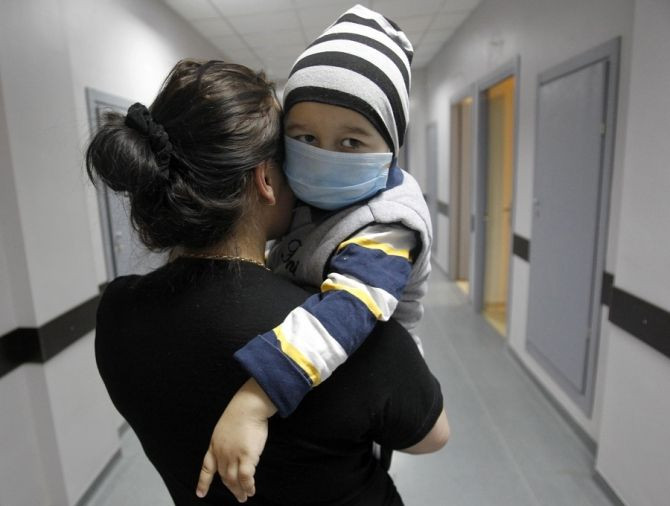Child Cancer Drugs May Cause Problems Later, Study

Researchers have found that drugs used to treat childhood acute lymphoblastic leukemia and other pediatric cancers may cause heart problems later in life.
As some childhood cancer survivors treated with anthracyclines developed cardiomyopathy – such as congestive heart failure – later in life, researchers at the University of Buffalo studied why. The drugs included antibiotics like Adriamycin and Daunomycin.
"Anthracyclines are effective drugs used to treat a variety of pediatric cancers, they are also used to treat breast cancer and other malignancies in adults," said UB associate professor of pharmaceutical sciences, Javier G. Blanco, PhD.
"After cancer, survivors can develop cardiac toxicity anywhere from one year to more than 15 years after the initial chemotherapy with anthracyclines. The window separating the effectiveness of these drugs from their toxicity is narrow. The dosage has to be precise to achieve a therapeutic effect without toxicity."
The authors explained that the study, which began 7 years ago compared DNA genotype of 170 childhood cancer survivors diagnosed with anthracycline-related cardiomyopathy to a control group of 317 survivors without heart disease.
Blanco and his colleagues were able to identify a tiny gene variant related to the risk of cardiotoxicity by using the candidate gene approach.
"We pinpointed the genetic difference or polymorphism that makes an enzyme work faster or slower in patients," said Blanco. “Slower is better."
Although the results of the study validated the findings of an earlier study in a different cohort of cancer survivors, Blanco said that further studies are required.
"We have to be careful," said Blanco.
"So far, we are showing an association, not yet causation. Our next step will be to conduct a prospective study -- where we don't study individuals who were exposed to anthracyclines in the past but follow them in real time as they are receiving the drug and after."
But Blanco advises parents to keep their children on anthracycines as it works so effectively.
"If we stop using anthracyclines we will not be able to cure up to 90 percent of the children who suffer from acute lymphoblastic leukemia." Blanco says. "Parents must continue to have their children's health monitored long after the cancer is cured to identify cardiac problems if they develop."



























